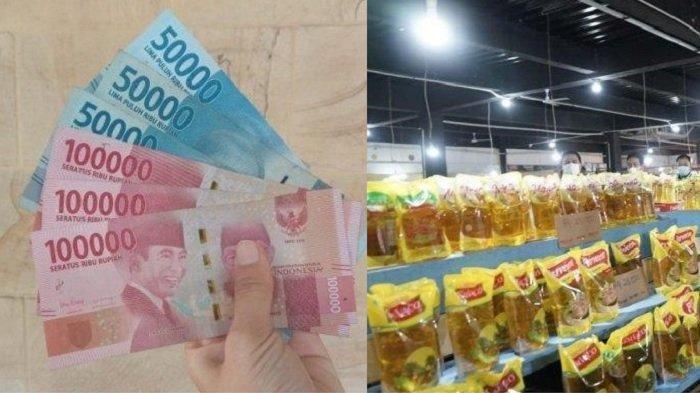Government Increases Social Protection for the Community
By: Abdul Kadir)*
The government increases social protection for the community. This policy was taken to reduce the economic burden on the community during the pandemic and the increase in several commodities due to external turmoil.
President Jokowi responded quickly to the increase in the number of basic necessities through social protection programs. One of the social protections provided by the government is the Cooking Oil Direct Cash Assistance (BLT) program. The increase in cooking oil prices will undeniably make many people object. To overcome this problem, the government has prepared a cooking oil BLT.
BLT cooking oil is one form of thickening social protection programs amid rising prices of basic commodities in Indonesia. The existence of this program is expected to maintain people’s purchasing power.
The Ministry of Finance has prepared a budget of Rp 6.9 trillion for the distribution of BLT cooking oil. This budget will later be given to 23 million recipients, including food vendors. However, to be able to receive this BLT, the community must meet certain requirements.
Meanwhile, the Presidential Staff Office has ensured that the distribution of the Cooking Oil BLT Program of Rp 100 thousand per month is on target. The recipients of the cooking oil BLT are people who have been registered in the Social Welfare Integrated Data (DTKS) from the Ministry of Social Affairs (Kemensos). DTKS becomes a database that has been synchronized with the Population Identification Number (NIK) and has been verified.
The provision of cooking oil BLT is of course aimed at easing the burden on the community from the increase in cooking oil prices due to the surge in the international market. Previously, the government has also launched a Pre-employment Card program that can be used by people who have not worked.
The Pre-Employment Card is a training fee assistance for Indonesian people who want to have or improve skills that will later be useful for getting a job. This program is a form of cooperation between the government and the private sector in serving the community with the spirit of mutual cooperation for superior human resources, advanced Indonesia.
During the Covid-19 pandemic, the pre-employment card program was prioritized for workers/laborers who were at home as well as micro and small business actors who were affected by their livelihoods. It is recorded that from 2020 to 30 September 2021, 12 million people have participated in the pre-employment card program.
Recipients of the Pre-employment Card Program will receive an incentive of Rp. 3.55 million. As much as Rp. 1 million of the total incentive must be used to purchase training packages and skills enhancement.
The remaining Rp 2.4 million will be given in the form of cash assistance which will be disbursed in stages. Furthermore, the remaining Rp. 150 thousand will be received if participants fill out a survey conducted by the Implementing Management of the Pre-employment Card Program.
During the pandemic, the implementation of the Pre-employment Card Program is expected to eliminate the gap between HR competencies and the needs of the world of work. Because it is often difficult for workers to find work because the competencies obtained from work institutions are not in accordance with the needs of the world of work. In addition, there is also a program that has been running for a long time, namely the Family Hope Program (PKH), this program has been launched since 2007.
PKH is a program created as an effort to accelerate poverty reduction. This program also opens access for poor families, especially pregnant women and children, to take advantage of various health care facilities and educational service facilities available around them.
PKH is a step that is expected to contribute significantly to reducing the number of poor people. Many people think that PKH is a continuation of BLT. However, PKH itself is different from BLT.
The benefits of PKH have also begun to be encouraged to cover persons with disabilities and the elderly by maintaining their level of social welfare. In the long term, PKH is expected to be a program capable of breaking the intergenerational poverty chain. This of course can be realized because PKH targets poor families and very poor families. With this program, families from these 2 categories can get access to education and access to health.
Social protection has always been a program that is able to become a social safety net for the community, especially during a pandemic or during a crisis such as when there is a shortage of basic commodities such as rice, sugar, cooking oil and so on.
)* The author is a contributor to the Nusa Bangsa Institute
